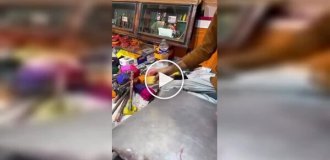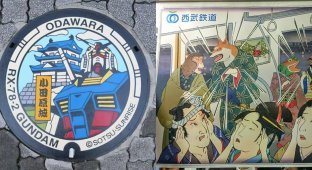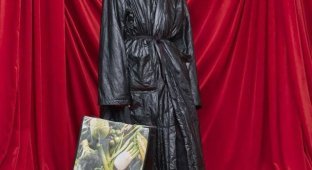For what unusual reason do yakuzas wear pins on their jacket lapels? (7 photos)
The Yakuza is a famous Japanese criminal organization known for its traditions and symbolism. One of the characteristic elements of the Yakuza (besides tattoos) are the badges that Yakuza members wear on the lapel of their jackets. 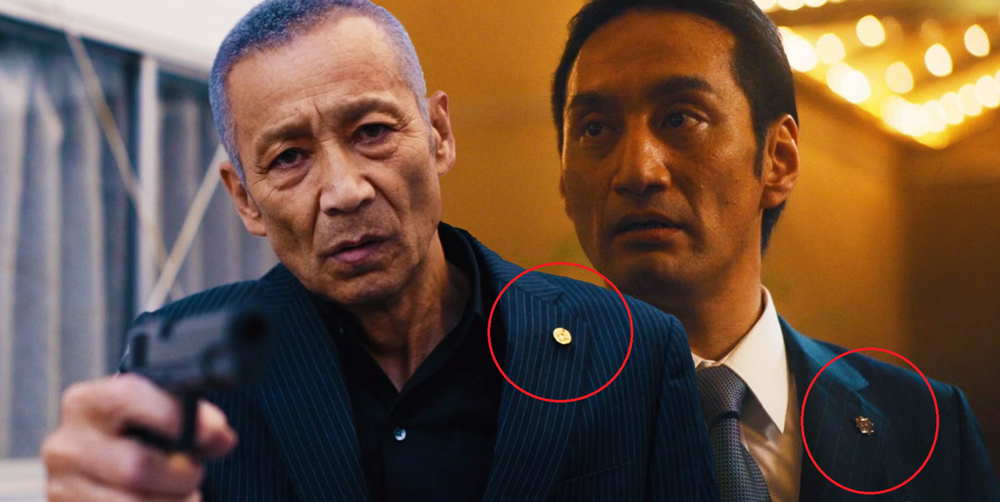
However, here everyone can ask a completely logical question: “what is the point”? After all, a bright and shiny icon is noticeable and easily stands out from the crowd. And if the yakuza hide their tattoos under their clothes, then wouldn't they be noticed by such noticeable badges?
Then why do they wear them? In fact, there is an unusual reason that will definitely surprise you.
But we will tell you more about everything in our new article:
A brief excursion into history 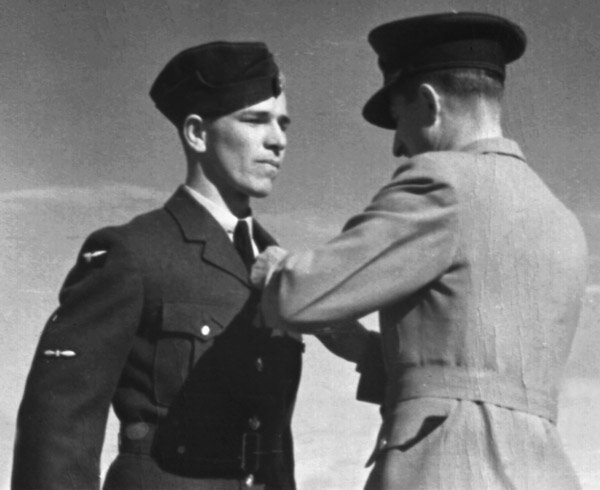
The history of badges goes back to ancient times, when soldiers wore them on their clothing to identify their membership in certain military units, and later as insignia (orders, medals) of their achievements.
It was only in the 1800s that badges became a truly fashionable accessory for a true gentleman, symbolizing a man's belonging to a higher educational institution or an aristocratic family. But sometimes the badge could simply be an element of costume decor.
Gradually, the practice of wearing badges on a suit became a popular way of self-expression. In the 1950s, jacket lapel pins became a symbol of youth culture and protest in many Western countries, and slowly migrated into corporate Japanese culture.
After World War II, Japan actively adopted all American fashion trends, this concerned not only style (like jeans), but manners of behavior, as well as jewelry and insignia.
Japanese culture of wearing badges 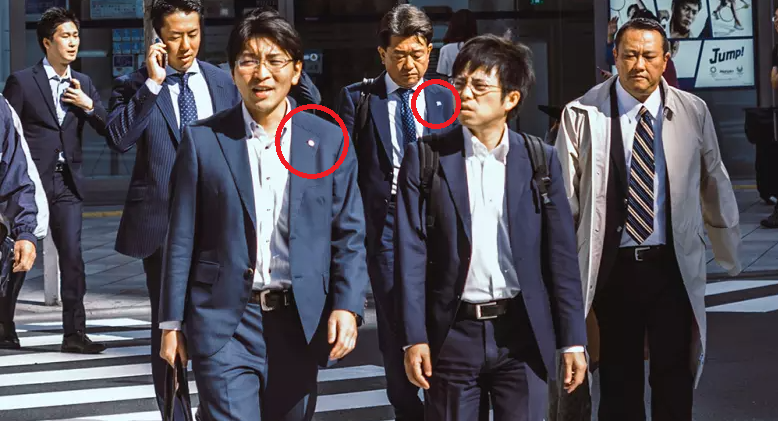
In Japanese, a lapel pin is called ?? (shasho) or ???(sain-shu), which means the insignia of a company or employee.
Often in the 1960s, Japanese companies had one rule and one rule only.
Every time an employee is on company premises or representing the company anywhere, he is required to wear a company badge on the lapel of his jacket. A company badge indicating his affiliation with the company. If an employee entered company premises without a badge on his lapel, he could be fired immediately. And this is not a joke (the Japanese who helped compile this article told us about this in detail).
It is obvious that such icons have formed throughout Japanese corporate culture.
Some may be square. Others are diamond-shaped, and some are round. Things could be different in different companies. Some had kanji engraved on them, some simply had the company logo.
Japanese lawyers have it even better 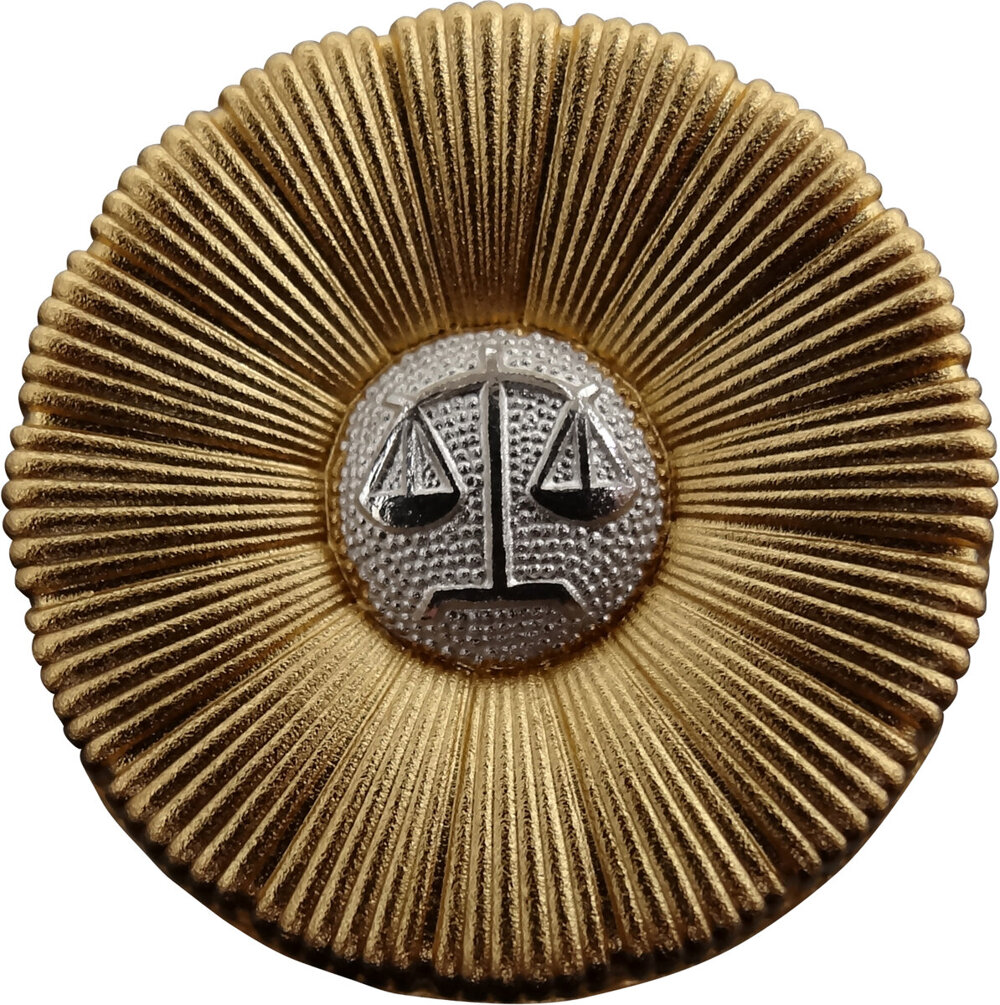
The most famous badge in Japan is the kisho badge worn by lawyers (bengoshi). The scales in the center of this icon are an obvious symbol of justice and the person's belonging to the legal profession. If you talk to Japanese lawyers, you will easily notice that their badges are not all the same color. Every newly licensed lawyer receives a shiny new gold plated badge from the Japan Federation of Bar Associations. Over time, the gold plating on the badge wears off, revealing the silver color. Thus, a silver badge is the sign of a veteran, which is why some aspiring lawyers try to boost their credibility by keeping their badges in their wallet to speed up the aging process. 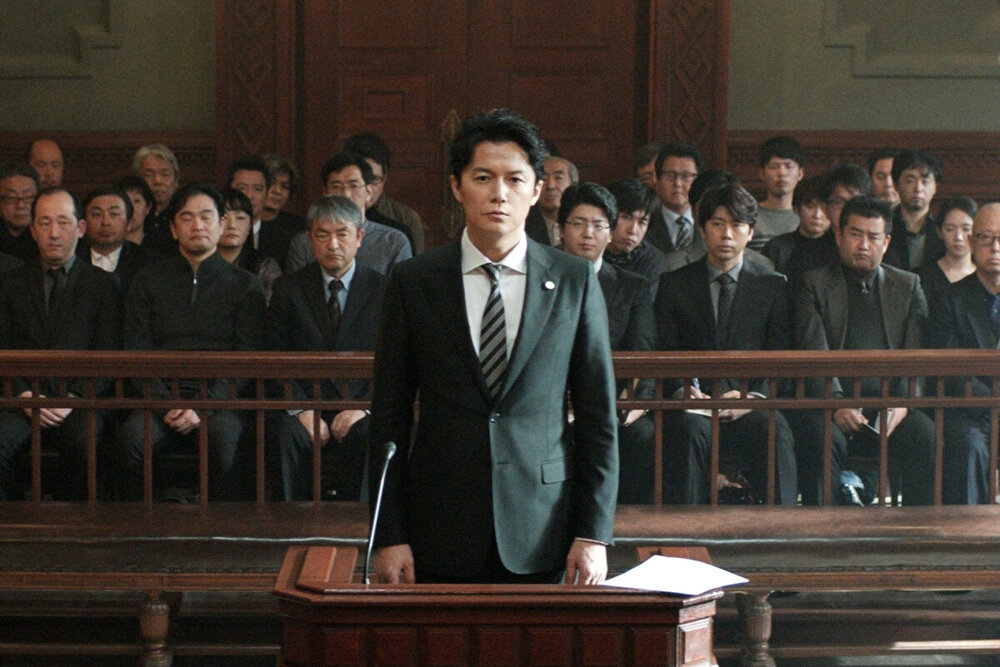
Under the federation's bar badge rules, employees are required to return them if they are stripped of their license, convicted of a crime, declared bankrupt or dead.
All key participants in the trial can be identified by their icons. Court employees wear a badge with the Japanese character sai (? - “to judge”). Judges receive a gold-framed version of the same design, while prosecutors wear badges with white chrysanthemum petals and gold leaves in the center, which also contains a red morning sun, reminiscent of the Japanese flag.
But why then do the yakuza wear such badges?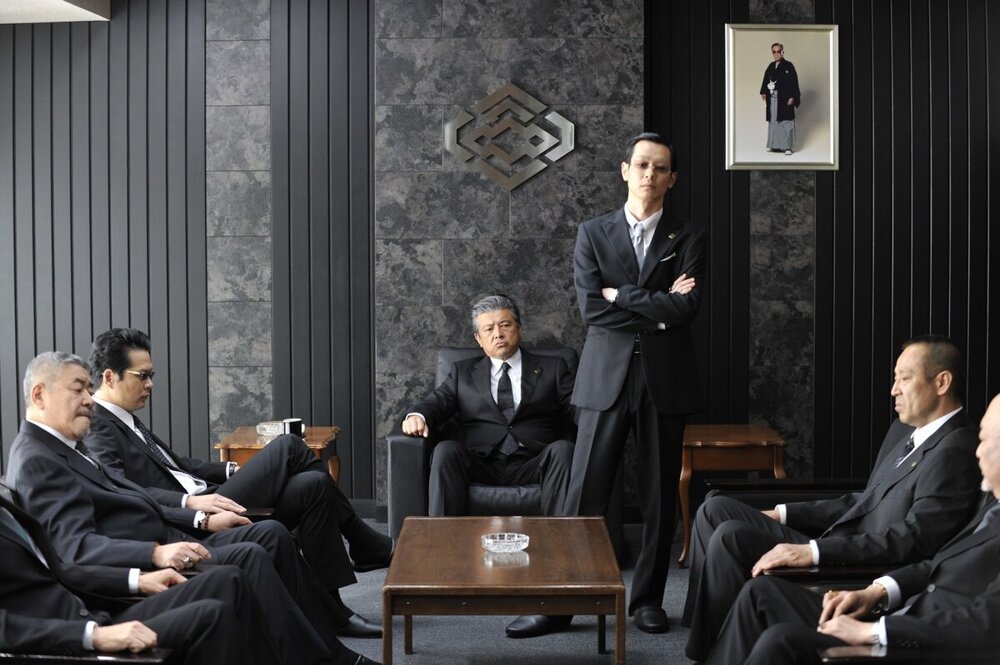
As you can imagine, for the Japanese, a jacket lapel pin is not just a small piece of shiny metal. Typically, such badges in Japanese history were worn by people belonging to the government, judicial system, or business. That is, the badge was both an important badge of honor and a symbol of elitism and belonging to a separate company.
The Yakuza began to wear similar badges with the emblems of their clans not only because their members belonged to a certain family (this also had a certain role), but also because from afar the badge looked like businessmen or officials. A common man would be able to see that he was a Yakuza if he were in close proximity to him to see or read the emblem from his lapel pin.
From a distance, any yakuza may seem to others to be an employee of a prestigious company, financial organization, or even an official. Because the Yakuza are difficult to recognize, they drive luxury cars, wear sharp business suits, and are generally polite. 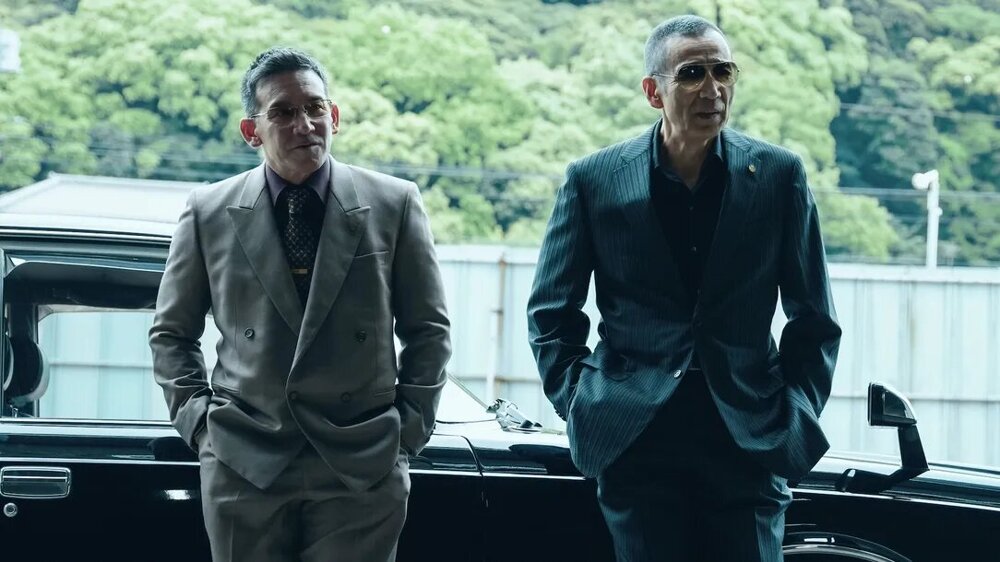
In most cases, the Yakuza never considered themselves simple street criminals, but rather saw themselves as successful entrepreneurs, defenders of the disadvantaged and businessmen who were not much different from ordinary businessmen (often “playing” in their field much dirtier than ordinary bandits).
Organized crime in Japan often works hand in hand with the pedigreed elite and other businessmen and individuals. Sometimes it is really difficult to distinguish a member of the yakuza from a businessman or official.
After all, leading yakuza clans are often successful criminal entrepreneurs who own black markets and many real companies. Real estate, construction and entertainment are all industries in which the yakuza clans are involved in one way or another.
In the early 2010s, a study conducted by a financial expert found that on the Tokyo stock exchanges, about 4.5% of companies had links to organized crime or were owned by the yakuza.
Interestingly, the platforms that the yakuza use for their financial and other business activities (both legal and illegal) are often legal or appear to be legal. These include licensed securities and financial companies, as well as a wide range of listed companies. Sometimes these companies are completely owned by the yakuza, sometimes they are heavily influenced, or, as is often the case, a small number of key executives are simply willing to cooperate.
Many yakuza extortion and blackmail schemes are carefully designed to maintain the Japanese tradition of politeness. Yakuza may ask corporations to attend their golf tournaments, donate to bogus charities, or purchase certain goods, all at ridiculously inflated prices. They may also find or invent damaging information about the company and use this information to blackmail its board of directors. Corporate leaders know that such requests carry a hidden threat, so they often agree, even though the yakuza never make direct threats or demands.
In this regard, given the importance of the corporate style of wearing badges in business for Japanese culture, the yakuza wear such badges not only to confirm their belonging to a certain family/clan (this is also very important), but also as an indicator of their influence and belonging to the corporate elite. Like many representatives of the largest prestigious Japanese companies.






